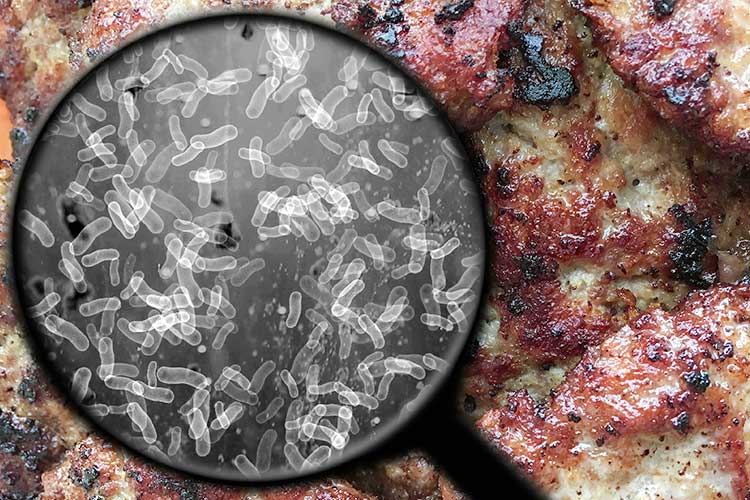Buzz Haven: Your Source for Trending Insights
Stay updated with the latest buzz in news, trends, and lifestyle.
Avoiding the Dinner Dash: Tips to Outsmart Food Poisoning
Stay safe and savor every bite! Discover expert tips to dodge food poisoning and enjoy stress-free meals.
Top 10 Foods Most Likely to Cause Food Poisoning
Food poisoning is a serious health risk that can result from consuming contaminated food. Understanding which foods are most likely to cause food poisoning is essential for maintaining a safe kitchen environment. In this article, we explore the top 10 foods most likely to cause food poisoning, helping you to make informed choices in your meal preparation. Some of these foods may surprise you, as they are often staples in many households.
- Raw or Undercooked Eggs: Eggs can harbor harmful bacteria like Salmonella, so it's crucial to cook them thoroughly.
- Ground Meat: Whether it's beef, pork, or turkey, ground meat increases the risk of contamination since bacteria can be mixed throughout the product.
- Raw Seafood: Sushi and sashimi made with raw fish can carry parasites and bacteria, making them a high-risk choice.
- Dairy Products: Unpasteurized milk and soft cheeses can contain listeria, posing a significant health threat.
- Leafy Greens: Spinach, kale, and other greens have been linked to E. coli outbreaks, underscoring the importance of proper washing.
- Fresh Fruits and Vegetables: Produce can be contaminated by bacteria in the soil or during processing, particularly when not properly washed.
- Prepared Foods: Dishes that are prepared in advance, such as salads and deli meats, can become breeding grounds for bacteria.
- Poultry: Chicken and turkey are notorious for Salmonella and Campylobacter, necessitating thorough cooking.
- Uncooked Flour: Raw flour can carry E. coli, and it should never be consumed raw.
- Sprouts: These can be contaminated during growth, making them a risky option.

How to Properly Store and Cook Food to Prevent Illness
Proper food storage is essential in preventing foodborne illnesses. Begin by ensuring your refrigerator is set at or below 40°F (4°C) to inhibit bacterial growth. Store raw meats on the bottom shelf to prevent any juices from contaminating other foods. Use airtight containers for leftovers and label them with dates to keep track of freshness. Remember to practice the FIFO method—First In, First Out—by consuming older items before newer ones. Regularly check expiration dates and dispose of any expired items to maintain a safe environment.
When it comes to cooking food, proper techniques are crucial in killing harmful pathogens. Always use a food thermometer to ensure meats reach safe internal temperatures: 165°F (74°C) for poultry, 145°F (63°C) for fish, and 160°F (71°C) for ground meats. Avoid cross-contamination by using separate cutting boards for raw meats and vegetables. Additionally, wash your hands with soap and water before and after handling food. By following these guidelines, you can significantly reduce the risk of foodborne illnesses and ensure a safe dining experience for you and your family.
Is Your Kitchen Safe? Essential Hygiene Practices to Avoid Food Contamination
Ensuring that your kitchen is safe is crucial for preventing food contamination and illness. Begin by maintaining a clean environment: sanitize countertops, cutting boards, and utensils regularly to reduce the risk of harmful bacteria. Implement the FIFO (First In, First Out) principle when organizing your pantry. This helps in ensuring that older food items are used before newer ones, minimizing spoilage and waste. Additionally, always check expiration dates and dispose of any expired products promptly.
Hygiene practices in the kitchen extend to proper food handling as well. Always wash your hands with soap and water for at least 20 seconds before and after handling food. When dealing with raw meats, use separate cutting boards to avoid cross-contamination. Invest in food thermometers to verify that meats are cooked to safe temperatures. By following these essential hygiene practices, you can greatly enhance your kitchen's safety and protect your family from foodborne illnesses.